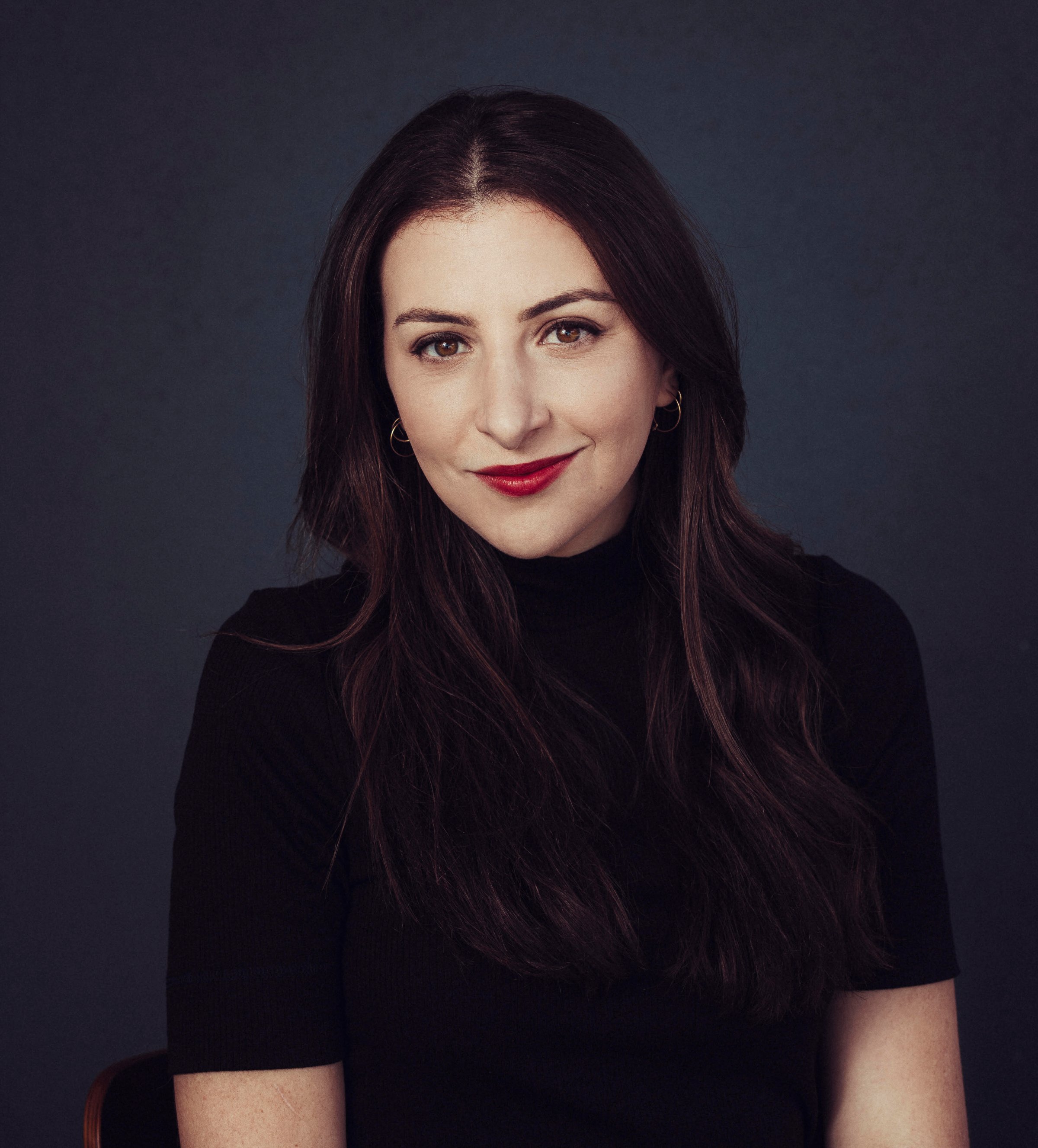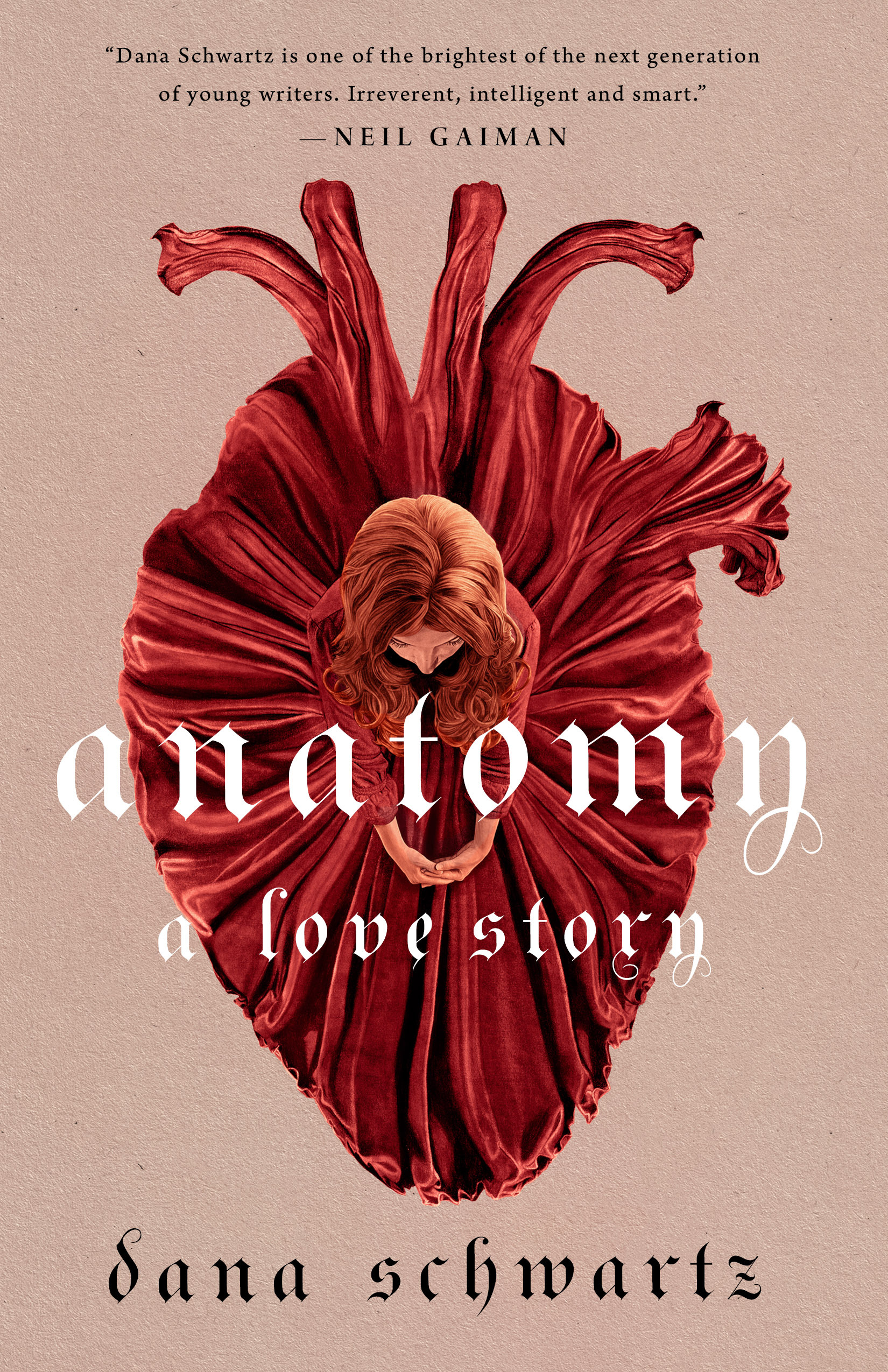
You might recognize Dana Schwartz’s name, it’s just a matter of where you’ve seen it. Some know her as the creator and host of the Noble Blood podcast, where she tells the stories of royals past; others through the parody Twitter account @GuyinyourMFA, which she started when she was a college student in 2013.
There’s also her books—among them her globe-trotting YA debut And We’re Off, based on her own post-college trip to Europe, and her memoir Choose Your Own Disaster, which chronicled the misadventures of her early 20s. But Schwartz says her latest book, a YA romance that mixes the historical and supernatural, might be her most personal work to date. It’s the romance she wanted to read when she was younger, complete with an ambitious heroine, a swoony first love and plenty of gore.
Anatomy: A Love Story, out Jan. 18, follows Hazel Sinnett, a noblewoman in 1817 Edinburgh who dreams of becoming a surgeon—a profession that women were for the most part barred from pursuing. After she is discovered dressing as a man to attend the lectures of the famed Dr. Beecham, Hazel is kicked out of the class, but strikes a deal with the doctor: if she passes the physician’s exam on her own, she can continue her medical career. In need of cadavers to study, she teams up with resurrection man Jack Currer to practice on the dead and living alike—and the ongoing Roman plague means there is no shortage of bodies to examine. But as live patients begin coming to them with missing limbs and no memories of how they lost them, Hazel and Jack begin to realize there is a force more sinister than the plague at work in the city.
Read More: The 21 Most Anticipated Books of 2022
TIME spoke to Schwartz about bucking the conventions of a romance novel, channeling her inner teen and why she retired her ultra-popular Twitter accounts.
Anatomy has a very dark setting and tone. What inspired you to write the story?
The summer after I graduated college, a friend and I decided that we would try to see as much of Europe for as cheap as possible. The place that I distinctly remember arriving to, like out of a dream, was Edinburgh. The Old City Centre is on this beautiful green grassy hill. It just felt magical. Since that trip, I’ve been fascinated by the city. I also love dark, weird history. This book feels like all of my passions coming together at once.
There’s a plague making its way through Edinburgh in the book. Did the pandemic influence your writing at all?
I began writing this book a year before we had even heard of COVID. Because plagues were a thing in history and I was writing a book that involves a lot of dead bodies, it only made sense that there would be this big atmospheric threat. In my original version, I had a character selling a cure for the fictional plague that turned out to be a sham. And when that became a threat in our real pandemic, I pulled it because I didn’t want people to get the wrong message.
The book is called a “love story,” but it doesn’t follow the typical arc of a romance novel, and Hazel’s romantic life takes a backseat to her love affair with surgery. What inspired that choice?
Hazel is someone who’s incredibly ambitious, smart and focused. I didn’t want the book to say the most important thing is finding a boyfriend. It always made me laugh in dystopian books when people are literally dying and the protagonist is like, “Oh, but who will I love?” But on the other hand, I didn’t want to say that smart, ambitious women can’t also find love and have crushes. The two aren’t mutually exclusive.

What inspired you while writing?
I made a playlist while writing Anatomy that had a lot of My Chemical Romance and Danny Elfman scores to allow me to regress into my suburban, emo-teen mentality, when I was 15 and wasn’t allowed to dye my hair and thought that the world was going to end because my crush wasn’t texting me back. I’m writing for my teenage self, and part of being a teenager is this weird optimism that you can do anything in the world. That’s the feeling I’m trying to capture.
Even though it’s written for a young audience like some of your past books, Anatomy feels like a pretty big departure. How did the writing process differ?
It’s weird because I’ve written a memoir, but this felt like my most personal book. Social media has made it very easy for me to hide behind a layer of detachment and be a little snarky. There are moments of Anatomy that are maybe funny, but there was no snark to hide behind. It’s earnest, and that was nerve-wracking.
Speaking of snark, a lot of people know you as the voice of @guyinyourMFA and @dystopianYA––Twitter accounts that blew up because of their snarky, satirical tone. Why did you decide to retire those accounts?
Twitter was this amazing opportunity for me to shout into the void and feel like I was being heard. GuyinyourMFA was the first time in my life I felt like the world outside of my college bubble noticed that I existed and thought I was funny. And that gave me the confidence to then be able to do basically the rest of my career.
But I felt like the joke kind of ran its course. I don’t know if the shelf life of those tweets would extend now or if they would seem kind of hacky. Even now looking back, I’m a little embarrassed. But then I have to remember, this was 2014. Twitter was a different place.
Back in 2016, when you wrote for the Observer, you penned an open letter to Jared Kushner about Trump’s anti-Semitism. Do you have any feedback for him now?
Is “Go to hell” feedback?
When Choose Your Own Disaster was published in 2018, you were outspoken about how books by and about women are often advertised as “guilty pleasures” or accompanied by misleading cover art—marketing tactics that rarely apply to books written by men. Do you feel like you’ve seen any growth in the publishing industry since then?
Yes, and no. It’s still a marketing issue. You still go to a bookstore and see the books that publishers choose to prop up as women’s fiction with the good intention of getting the book to sell. There’s nothing wrong with that—but I do think it sometimes happens at the cost of people taking those books seriously.
This interview has been condensed and edited for clarity.
More Must-Reads from TIME
- Cybersecurity Experts Are Sounding the Alarm on DOGE
- Meet the 2025 Women of the Year
- The Harsh Truth About Disability Inclusion
- Why Do More Young Adults Have Cancer?
- Colman Domingo Leads With Radical Love
- How to Get Better at Doing Things Alone
- Michelle Zauner Stares Down the Darkness
Write to Simmone Shah at simmone.shah@time.com